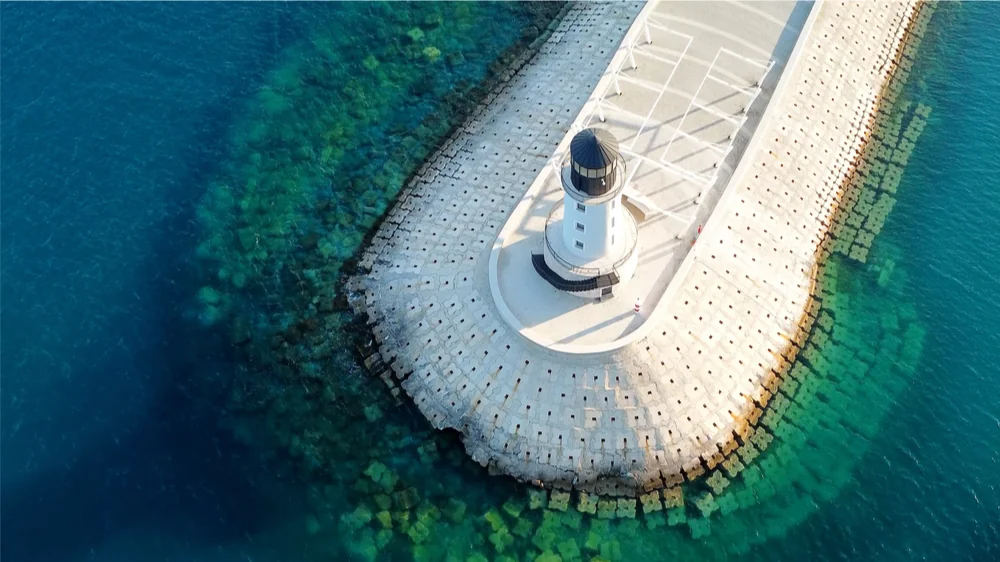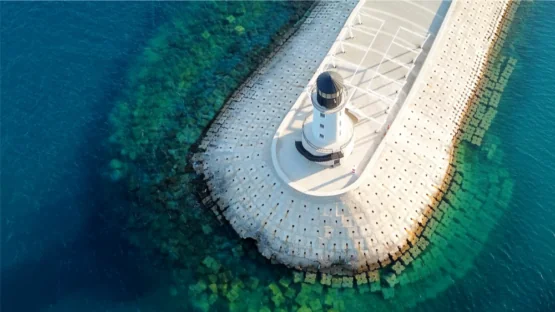Sometime in the early spring of 2023, rumors began to circulate in the longevity community. “Hey, have you heard about this thing going on in Montenegro? It’s called Zazulu… No, Zuzalu! You should definitely check it out.”
The tight-lipped description on the website didn’t explain much, but the words “pop-up city” teased imagination. Then, the picture became clearer. Zuzalu was a co-living project conceived by a tight-knit group of people and started by Vitalik Buterin, the young multimillionaire creator of Ethereum. Vitalik was also the project’s main sponsor.
Via a system of invites, Zuzalu brought together people from several vaguely overlapping fields, such as crypto, AI safety, network states (which I explain later), decentralized science, and longevity. The schedule, full of educational and social events, provided a glimpse of what Zuzalu had to offer. The longevity part included, among other things, the crash course “Longevity 0 to 1” and what looked like a proper longevity biotech conference, boasting some big names in the field.
The city popped up in late March somewhere on the Adriatic coast of Montenegro, a tiny Balkan nation. The exact location remained a secret, and the people of Zuzalu apparently were quite good at guarding it: at least, I couldn’t geolocate it at the time from a handful of photos I had found on Twitter.
I knew I had to go there, and, thankfully, the team shared my enthusiasm (eventually, four of us ended up in Montenegro). A few days later, after some complex online manipulations to get my “Zuzalu passport”, and a grueling flight from Seattle via Istanbul, I was peeping through the plane’s window as it was taxiing towards one of the tiniest airport buildings I’ve ever seen. After the vast and shiny Istanbul airport, the contrast was stark. We disembarked on the tarmac and strolled towards the gate under the blue sky.
Under the Black Mountain
Podgorica may be a capital, but it’s the capital of one of the smallest nations in Europe. With a population barely hitting 600,000, Montenegro is tied with Luxembourg, except for the wealth. The name of the country means “Black Mountain”, and the city name means “under the mountain”. Simple and unassuming, like a lot of things there.
When Yugoslavia disintegrated, Montenegro remained part of Serbia but gained full independence in 2006. Due to its prime location, a good chunk of the country’s income comes from tourism. Montenegro is sparsely populated and full of stunning mountain landscapes. Human dwellings, however, are often neglected and dilapidated – something you would expect from a country that has a per-capita GDP of roughly 10,000 U.S. dollars. At the same time, in coastal resort towns like Budva, Kotor, and Tivat, tidy marinas host billionaires’ yachts, and restaurant prices easily compete with Seattle’s.
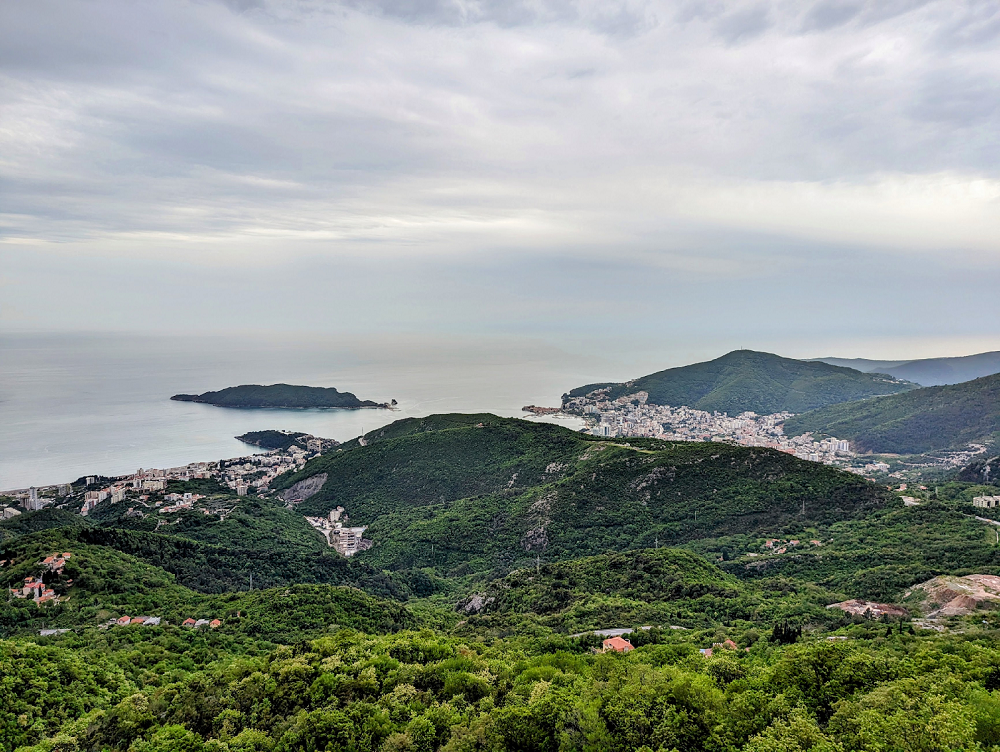
A typical Montenegrin landscape
Montenegro is Western-oriented, a member of NATO, and looking to join the EU. The country has a vibrant democracy, with its president and prime minister being the second and fourth youngest country leaders in the world, respectively. Montenegro is still a hub for narcotics and human trafficking, although the influence of organized crime is declining. In short, it is a country with good intentions, battling its demons, and looking for long-term stability and prosperity.
Understandably, Montenegro courts people like Vitalik. “I knew a couple of locals here in Montenegro, having been introduced to the country last year,” he said in our interview. “The government has been very open to becoming more crypto-friendly. On my first visit, they gave me citizenship, something that no other country has done. They did a lot, and I just happened to know people here who are very good at logistics and organization. From there, people started joining in. The team and the organization started growing very quickly.”
Following a 90-minute taxi ride from Podgorica, I found myself in what was supposed to be Zuzalu (the name, by the way, is AI-generated and intentionally doesn’t mean anything in any language). Jetlagged, disoriented, and hungry, I simply wandered into a random restaurant and immediately got sucked into a leisurely discussion oscillating between AI safety and network states (more on those later). In about half an hour, which was barely enough for the local waiters to bring the menus, we were joined by a slender figure in a plain T–shirt and a flapped hat: none other than Vitalik himself. This apparent lack of hierarchy cheered me up. I don’t like hierarchy.
After a friendly chat, it was time to explore the surroundings. Luštica bay (pronounced “loosh-tee-tsa” and not “loos-tee-ka” as most Zuzalians seemed to incorrectly assume) is dominated by one company that builds multi-apartment villas. What looks like a tidy seaside village is basically a single sprawling hotel.
The Zuzalu organizers bulk-rented a bunch of apartments and were subletting them to about 300 Zuzalu residents and a rotating crowd of a few hundred more visitors. If you tried to book a room in the hotel online, the prices were exorbitant, but the organizers installed a system of discounts that made the whole affair a lot more egalitarian. I, however, like many other people, rented a 50-buck-per-night bed and breakfast in a nearby village connected to the hotel by a frequent and convenient shuttle service.
By the water, you had a 400-yard-long promenade with several pricey restaurants, one cheap bakery frequented by the local staff, a couple of boutiques, a minimarket, and a pharmacy. It’s probably easy to get bored in Luštica if you’re just vacationing.
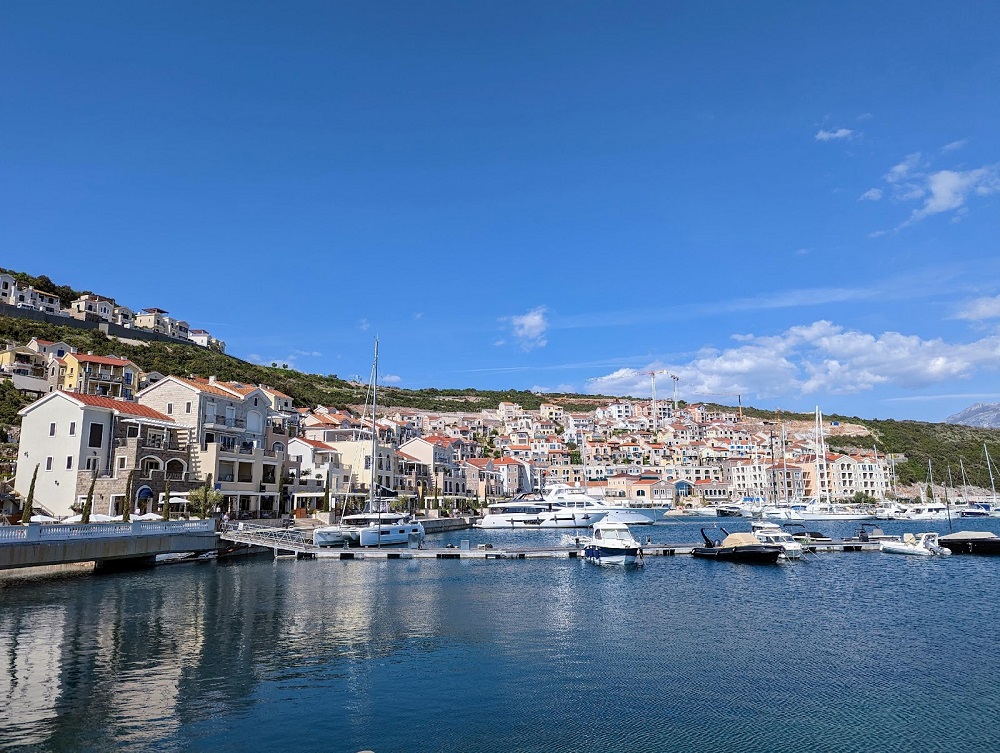
Luštica Bay
A place devoid of small talk
But, of course, Zuzalu wasn’t about vacationing. The bucolic surroundings, the picturesque bay, the yachts, and the sun were all initially nice, but on the second day, it already felt more of a distraction from the main thing: the people.
If there’s anything I hate wholeheartedly, it’s small talk. With so little time and so many interesting things to discuss, why would anyone want to engage in it? Imagine my joy and excitement when I realized this was something Zuzalu was completely devoid of. Every conversation there was meaningful, and the transition from the initial greetings to discussing some of the world’s most pressing issues was lightning fast.
There was very little boasting. Zero alpha male crap. Everyone – a digital nomad, a recent refugee, a startup owner that just made a decent exit – was equal here, except maybe Vitalik, who had this founder aura around him (which wasn’t his fault) and the singer Grimes, who stayed in Zuzalu for a few days. She was easy-going and accessible, but, well, it’s Grimes we’re talking about. Sadly, I narrowly missed her party, which, by all accounts, was epic.
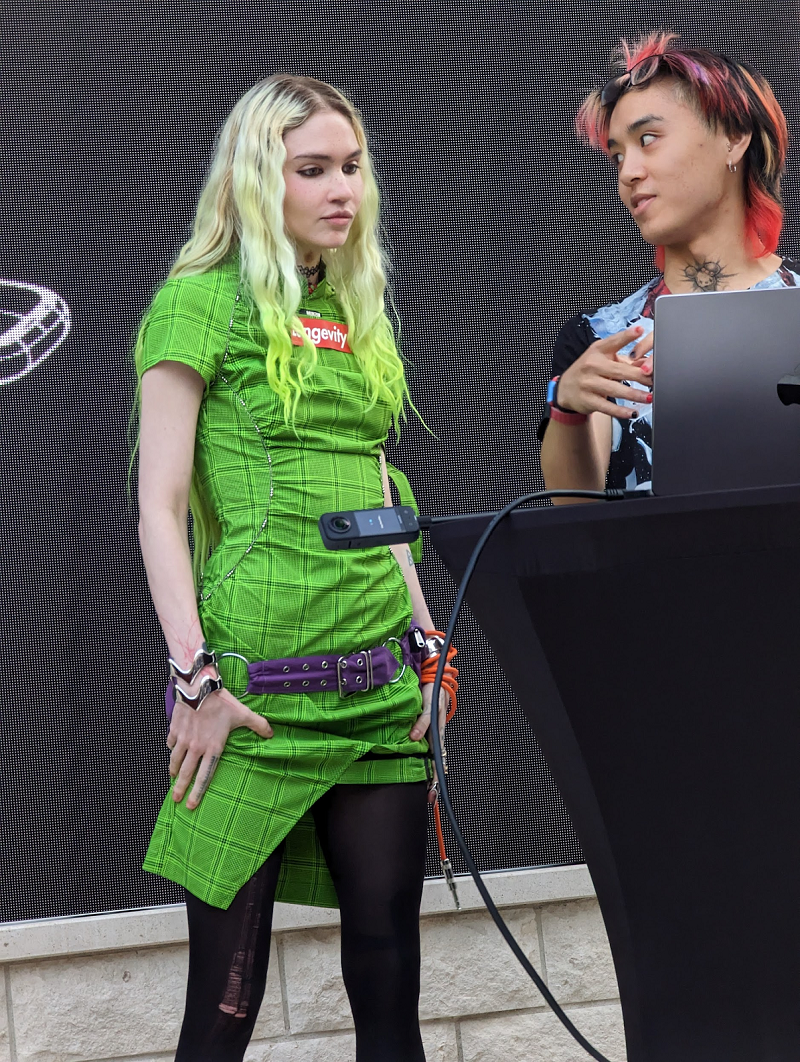
Grimes in Zuzalu sporting a “Longevity” sticker
The best time and place to meet new people was the locally famous Zuzalian breakfast, served free by one of the restaurants and modeled after Bryan Johnson’s Blueprint. Of course, there were plenty of other opportunities, but while people usually planned lunch and dinner in advance and spent them in someone’s company (which you could crash anyway), most Zuzalians began their breakfast alone. This allowed you to place your tray next to someone you never met before and just start talking.
I wasn’t alone in my almost childish exhilaration about Zuzalians. “I’m so impressed by the mix of people”, Primavera De Filippi, a Harvard scholar, activist, and artist, told me. “it’s very easy to stumble into someone that I either know or that I don’t know yet, but that I really should know.”
Most of my interlocutors shared this feeling, but it was probably best expressed by Mike Johnson, philosopher, neuroscientist, and entrepreneur who wrote a book on consciousness: “Everyone I meet here is worth interacting with. These are just delightful interactions. It’s like you’re fishing in a pond, and every fish you bring up is very tasty. It’s a beautiful thing, and it makes you want to fish more. It opens you up: ‘OK, who can I meet today? I haven’t met this new person, let me say hello to them.’”
It did open me up! In our interview, I asked Vitalik whether he thought Zuzalu was a good place for introverts? He said that it was trying to be by giving people a choice (for instance, to attend or not attend events) and not imposing a collective lifestyle they might be incompatible with. “There’s this interesting thing I have noticed”, Vitalik added. “I have one friend here who is an extreme introvert. Normally, he goes off by himself, doesn’t really talk to people, and here he just did, he started talking to people more because those were people he wanted to talk to.”
You talk to people more when those are people you want to talk to – is there anything truer and simpler than that?
Another philosopher and author I met in Zuzalu was Patrick Linden, whose book “The Case Against Death” deals with the ethical aspects of life extension. “The most amazing thing in coming here”, Patrick said, “is that my work has been a lonesome affair, mostly just reading about the subject matter, engaging with people through books. Finally, here, I find people who are like-minded. It’s a mixed crowd, but everyone here has made a mindful decision to be open and try to learn, be patient and interested in each other. I’m so impressed by their awareness, but also by their self-critical stance. A lot of people here are entrepreneurs, doers, and that’s inspiring for me, coming from philosophy. They have an incredible way of combining almost informal carelessness with purpose, drive, and fearlessness. It’s a very fascinating bundle of virtues that they’re displaying.”
As a journalist, I can relate to that since my profession is mostly about covering things other people do. Patrick was right: in Zuzalu, I found myself surrounded by people who were not just curious and visionary but also had the skills and the will to pursue their vision.
A disclaimer is due. While, generally, everyone was conflict-avoiding and gracious, I did witness storm clouds brewing a couple of times. Frustratingly, in all cases both sides were well-meaning, but misunderstandings brought things to the brink of explosion. To me, this served as a preview of things to come if Zuzalu becomes bigger and more extended in time. Among the skills needed to build a shining city on a hill, conflict resolution is probably an important one.
Learning, action, fun
Zuzalu wasn’t all talk but also a lot of learning, action, and fun. Atmosphere-wise, it resembled a science conference, but those are more narrowly focused and end way too fast. Quoting one resident, Zuzalu was a “small, tech-y, conferenc-y, intellectual Burning Man, where you roam from thing to thing, and with all the parallel experiences happening, you can easily find your own adventure.”
The schedule was divided into weeks, each dedicated to a single subject. The days were packed with lectures, talks, panel discussions, hackathons, and seemingly every other possible form of collaboration. People were also able to suggest and publicize their own events, hoping that someone would show up (and someone usually did).
While at a regular conference, you also get a great deal of collaboration, in Zuzalu, there was significant cross-pollination between fields. People from longevity, crypto, network states, decentralized science (DeSci), public goods, indeed reminded me of buzzing bees, bumping into each other in Brownian motion, easily finding common ground and language.
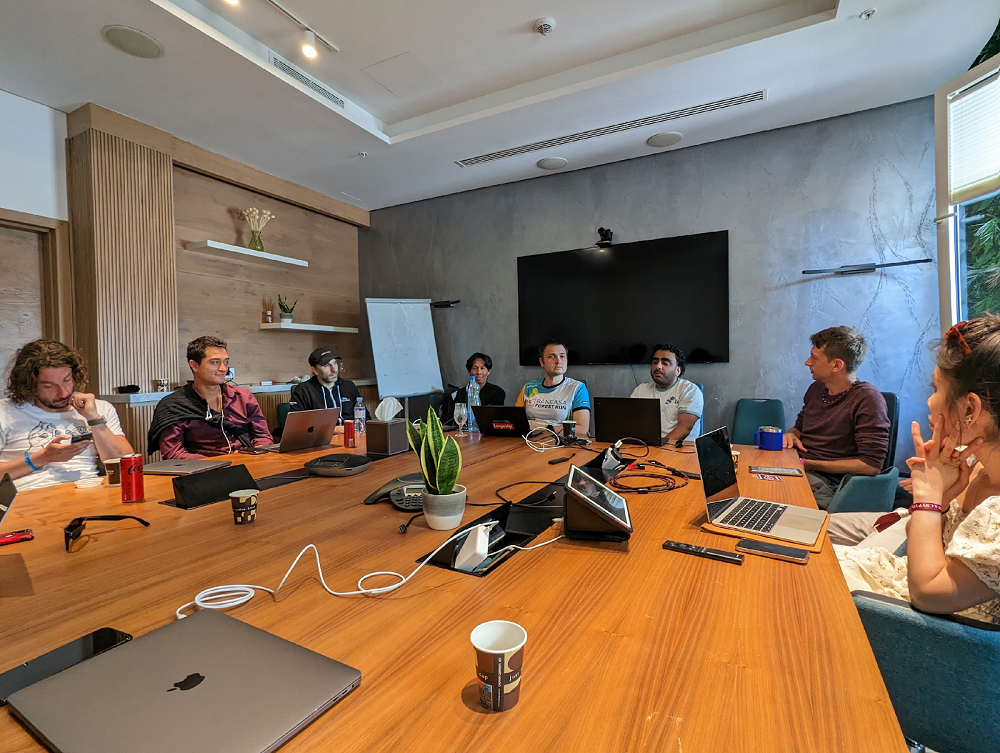
A meeting on decentralized science
Another thing that made Zuzalu a step up from a conference and a milestone on the road to a network state was free time and how people used it. After all, a state is not something you attend, it’s something you live in. While some things were planned by the organizers and expected to attract everyone, like the Indian barbecue on the beach, there was a myriad of smaller events, open and close, many of them taking place in apartments. For instance, on my first day in Zuzalu, which fell on Friday, I ended up at a completely non-religious (very much to my liking) Sabbath evening organized by a Telegram group called Jewzalu.
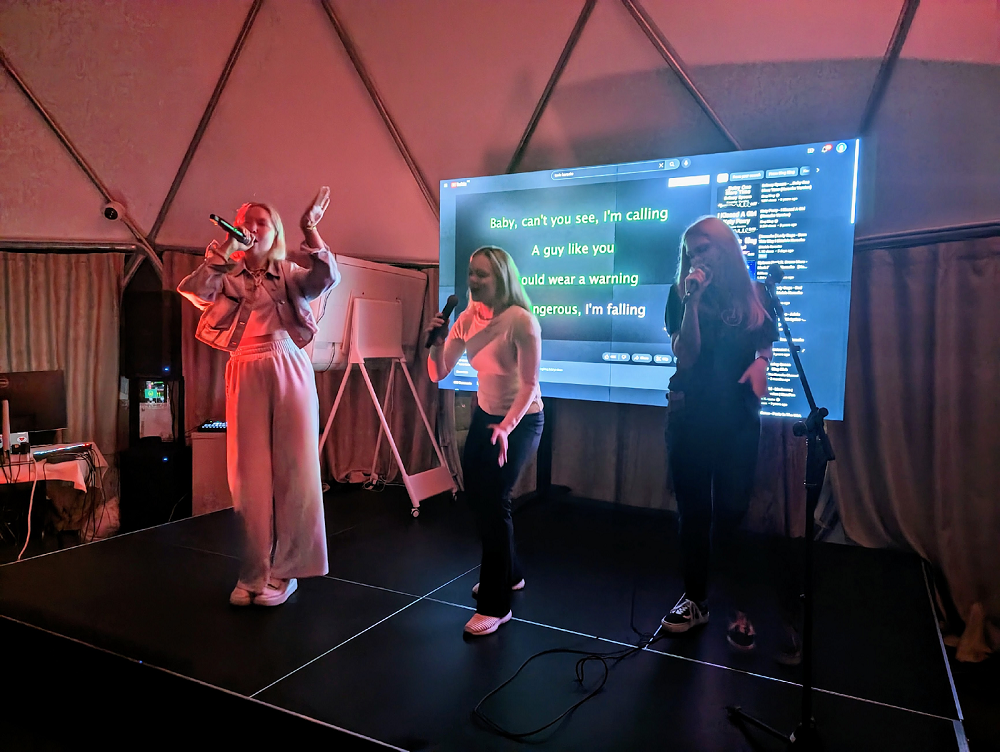
Karaoke night
On Telegram, the messaging app of choice in Zuzalu, a sprawling hub hosted channels with official announcements, as well as unofficial groups dedicated to sports, memes, fasting, food pics, LGBTQ, and a thousand other topics. One was about Zuzu, the puppy rescued by the people of Zuzalu. Zuzu was run over by a car, but Zuzalians organized good care for him and a transfer to San Francisco where the brave Montenegrin mutt is now recovering. Another was called Anti-Longevity Longevity Club and had people jokingly bragging about all the unhealthy stuff they did. Finally, as Zuzalu was drawing to a close, groups started popping up that were about keeping its spirit alive and its people connected, like Zuzalians in Vienna, or Bay Area After Zuzalu.
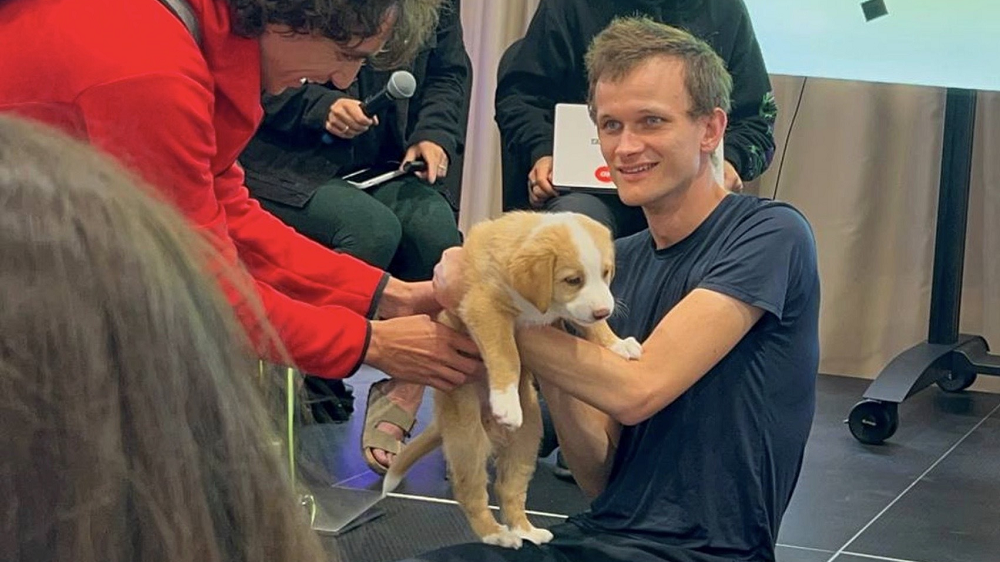
Vitalik holding Zuzu. Photo: Michelle Lai
Longevity in Zuzalu
I got to Zuzalu as the longevity week was about to begin, but what was longevity’s place in the grand Zuzalian scheme of things? How did it go along with topics like crypto and AI alignment? When I started asking people that question, some suggested that longevity was just one of the organizers’ spheres of interest. Vitalik, however, insisted that there’s more to that: “There’s a significant cluster of the crypto space that’s interested in longevity. Longevity is also a perfect fit for decentralized science and public goods.”
Longevity is indeed quickly becoming a hot topic in the tech world. Say what you want about Bryan Johnson (and I have), but while he might have alienated some part of the general public, he certainly created a pro-longevity buzz among tech people who see him as one of their own. Everyone in Zuzalu seemed to know about Bryan’s bold rejuvenation quest and to express at least some interest in what he was doing.
Of course, this didn’t start with Bryan. Aubrey de Grey, a veteran geroscientist and a legend in the longevity field, said that “people from the crypto world are quite intrigued about longevity, and there’s been an overlap between those two worlds for a few years now.” Aubrey, who has always been keen on the recreational aspects of community building, told me he thoroughly enjoyed his time in Zuzalu, “a great place for that [crypto-longevity alliance] to be cemented.”
Open Longevity, our fellow longevity non-profit, was very active in Zuzalu. Its multinational Say Forever initiative is built on field-surveying people, asking them how long they want to live and then a few other questions aimed at gauging their attitudes towards life extension. This provides a segue to dispel various misconceptions about our field and maybe draw the respondent into the longevity orbit.
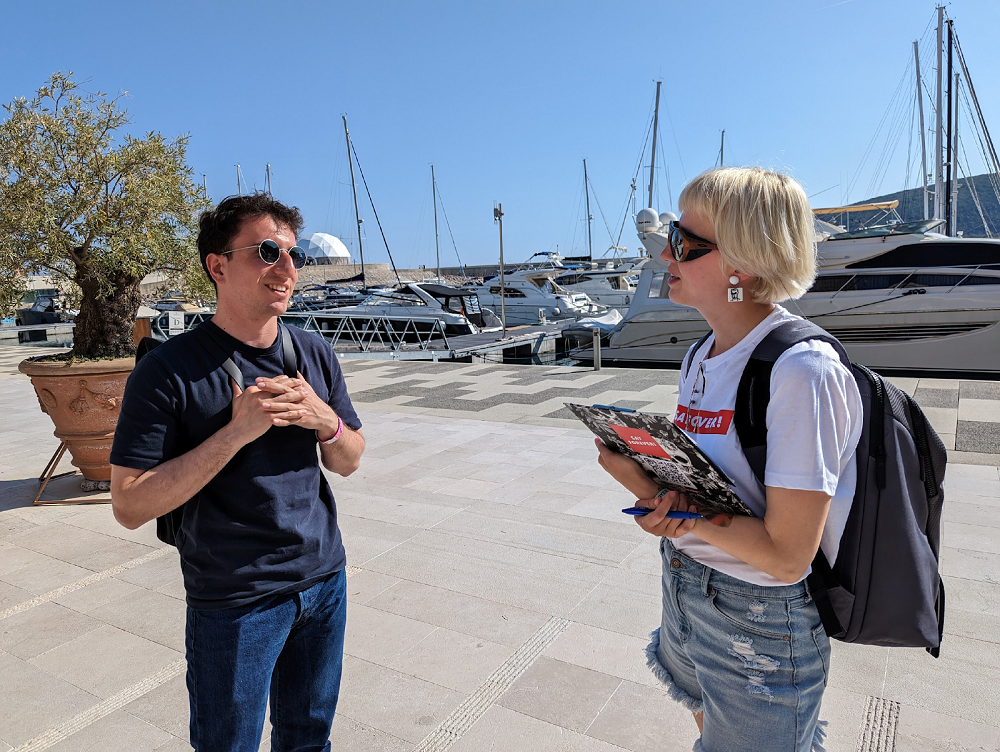
Anastasia Egorova taking Zuzalu’s pro-longevity pulse
According to Anastasia Egorova, Open Longevity co-founder and CEO, the results largely matched what they had observed in other tech-rich environments, with half of respondents expressing their desire to live forever. This jumped to 62% when the clause was added that the respondents could stay healthy indefinitely. In Zuzalu, Anastasia says, Open Longevity “had a chance to convert exactly the type of people that can improve our field dramatically.”
It’s inspiring for someone like me to see advocacy taking center stage in longevity-related events. Zuzalu featured a whole workshop on longevity advocacy led by Aubrey, Anastasia, and Lifespan.io’s own Keith Comito and Stephanie Dainow. The entire course of Longevity 0 to 1 was a success that can serve as a template for future longevity education. You can also read a detailed account of the longevity biotech conference held in Zuzalu here.
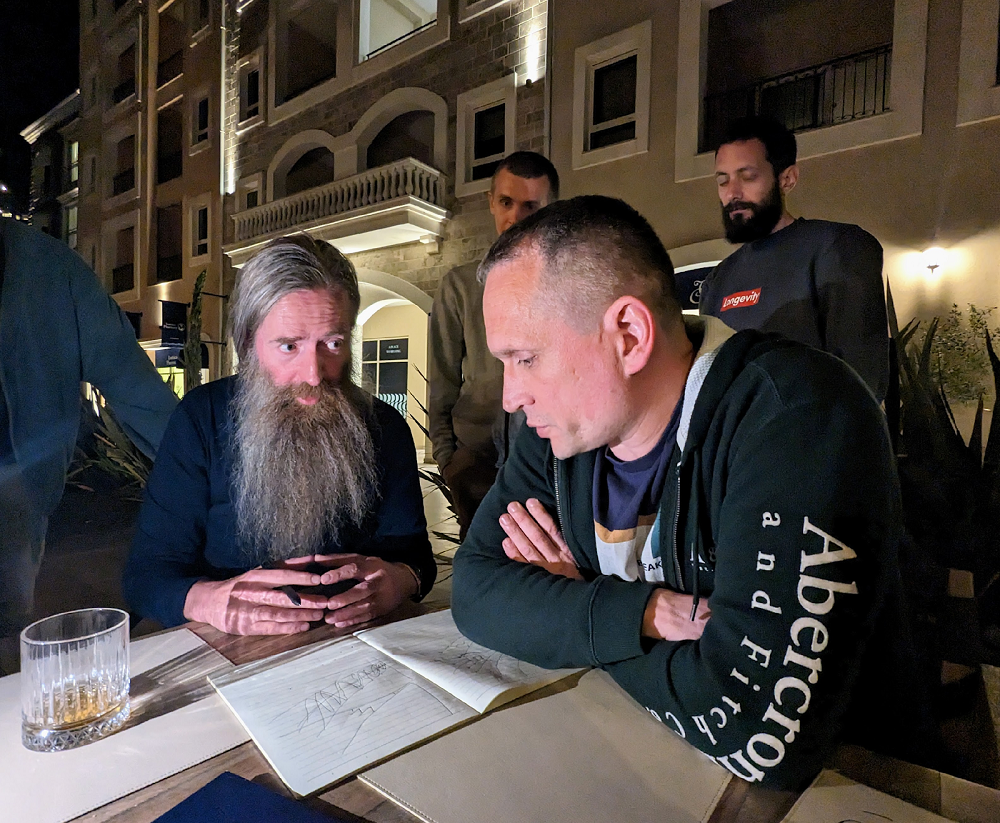
Aubrey de Grey and Peter Fedichev, CEO of Gero, discussing Peter’s novel theory of aging
Yet not all Zuzalians were firmly in the longevity camp. I heard many familiar anti-longevity arguments, but also a new and rather unexpected one. Some people from the AI safety field seemed to be convinced that we shouldn’t be investing in longevity, because humanity will soon be erased from the face of the planet by a malevolent AI. At the very least, their argument went that we should give AI safety priority over everything else, pouring the bulk of our resources into averting this looming catastrophe.
This was a conflict of interests: not only do we, longevity people, not want resources to be diverted from our field (we want quite the opposite), but we actually need strong AI to solve the immensely complex biological problems on the way to conquering age-related diseases.
The best person to take this up with was Nate Soares, head of Machine Intelligence Research Institute (MIRI). “I don’t think we are in any conflict”, he told me. “I am emphatically pro-longevity. I don’t see the AI alignment stuff as a question of ‘should we get strong AI or not?’ Obviously, we should. It’s also quite imperative to use it to solve aging. I just want humanity to build versions of AI that are friends and allies in the great fight rather than versions that happen to want something else and kill us as a side effect. In fact, we should not be having to make this choice at all. In a sane world, we would be funding anti-aging research, cryonic biopreservation research, and AI alignment research at the same time with mere fractions of GDP.”
Sebastian Brunemeier, co-founder and general partner at Healthspan Capital, admitted that “AI people view AI safety as a more acute issue than longevity”, but suggested that “pretty much everyone here is really keen on longevity, very excited about it.”
Indeed, many people shared my feeling that despite some real and perceived misalignment, there’s a deep philosophical connection between longevity and the rest of the fields represented in Zuzalu: they all are about redefining humanity, overthrowing assumptions that people have been clinging to for centuries.
Think about it: we have always assumed that we were the only intelligent creatures on the planet. Today, AI is threatening to upend that. Crypto is after our notion of money. Decentralized science is disrupting the way we acquire knowledge. Network states are upending fundamental beliefs about human collectives. Finally, the idea that aging should and can be defeated may be the most revolutionary of them all.
Laurence Ion of VitaDAO, entrepreneur, angel biotech investor, and one of the insanely hardworking Zuzalu organizers, noted that “both crypto and longevity people are super-forward thinking, out of the box, more first-principle aligned, more like ‘let’s question the status quo’ – changing the way finance and, respectively, medicine, are being done.”
Nate called AI alignment and longevity people “brothers in the fields of ‘let’s solve some of the biggest problems humanity has that no one’s noticing.’”
According to Anastasia, “Zuzalu is about people who want to change, even to disrupt, the world for the better, and it makes total sense for longevity to be on the agenda. How can we improve the world without fixing the biggest problem humans have always faced — our limited time in this world, our fragile biology?”
Sebastian, talking about longevity and networks states, said that “both movements are radical, iconoclastic, trying to disprove what Ben Franklin said – that only death and taxes are inevitable.”
Maybe this was the most exciting thing about Zuzalu: being on the civilizational frontier.
What the hell is a network state?
Soon after my arrival, I realized that I came unprepared. Zuzalu was an experiment on the way to a network state and everyone kept mentioning “Balaji”, aka Balaji Srinivasan, the former CTO of Coinbase, and his book “The Network State”. I knew Balaji’s name, but I hadn’t read the book, so I had to do it in a hurry.
Balaji’s ideas are steeped in his theories about the political past, present, and future that many will find questionable, like his dismissal of American democracy as a working system (he maintains that the US is ruled by the “woke establishment,” while the word “democracy” is hardly ever mentioned in the book). My personal convictions aside, this gave me pause because it showed how different the political views of people rooting for a societal alternative can be. However, as Vitalik notes in his insightful review of Balaji’s book – The Network State. You don’t have to agree with Balaji’s political and historical narrative to appreciate his work on the theory of network states.
So, what IS a network state? Balaji (since everyone in this space addresses him by his first name, I will stick to that) offers a layered explanation: in a sentence, then in a definitely-too-long sentence, then in a thousand words, and so on. The two one-sentence definitions are worth quoting here in full:
A network state is a highly aligned online community with a capacity for collective action that crowdfunds territory around the world and eventually gains diplomatic recognition from pre-existing states.
A network state is a social network with a moral innovation, a sense of national consciousness, a recognized founder, a capacity for collective action, an in-person level of civility, an integrated cryptocurrency, a consensual government limited by a social smart contract, an archipelago of crowdfunded physical territories, a virtual capital, and an on-chain census that proves a large enough population, income, and real-estate footprint to attain a measure of diplomatic recognition.
You can find many analogies for a network state in the extant and extinct forms of human organization (among recent innovations, DAOs are certainly worth mentioning), but as I see it, a network state is a ground-up global organization with a high level of involvement and loyalty from its members who crowdfund services and activities that align with and promote a set of values, meaningfully improving their lives along those values.
This is the backbone, while most other elements might not be essential. For instance, Vitalik disagrees with Balaji’s insistence on the “recognized founder”. The question of territory is complex, but it has many answers. A network state can be a hub of crowdfunded properties around the world – nodes where the state’s citizens can find a convenient, familiar, and supporting environment. Alternatively, it can physically exist only on a particular piece of land or not maintain any continuous physical presence at all.
For me, one of the most powerful ideas in the network state paradigm is that a network community that has amassed enough human, technological, financial, and other resources can and should strive for some type of international recognition. It’s obviously not fair that only nation-states, which are loose and mostly arbitrarily defined congregations of people who disagree on some of the most fundamental things, can be legitimate players.
Balaji already has many critics, and some of them were represented in Zuzalu. An alternative movement informally headed by Primavera De Filippi was tentatively called “coordi-nations” or “commu-nations” (Primavera admitted that the name is a work in progress). This concept, whatever you name it, is less keen on territorial sovereignty and less antithetical to the existing order.
“Today, when you say ‘network state’, it’s associated with what Balaji defines in his book”, she told me. “We’re trying to bring a broader vision, looking at alternative recipes for a network state. We explore approaches that do not compete with nation-states, that don’t try to declare sovereignty and take their place. Rather we emphasize the “network” in “network state”.
Primavera expects that existing nation-states would be more open to such a cooperative arrangement, and “coordi-nations” will be able “to become geopolitical actors without claiming a territory.” While Balaji’s book is more libertarian and contemptuous towards existing nation-states, Primavera acknowledges that many people who want to join a network state might still harbor affinity for their nation-state and its citizens – something Primavera herself feels towards France. “I don’t mind paying taxes in France”, she said, “because of a sense of solidarity. It’s important to me to live in a country where people are fine. I’m more European on this, I think it’s great that there’s redistribution of wealth, and I can support my community.”
People might simply find living where they currently live comfortable and advantageous. “I’m starting out from living in an utter paradise”, said Aubrey who is based in the Bay Area. “Language, infrastructure, future-friendly culture. It’s hard to beat that.” He likes the idea of network states, however, because “if you start from scratch, you have more options to do things in a manner that’s appropriate for modern times. Maybe nation states should start from scratch every so often.”
While the idea of starting from scratch is enticing, I couldn’t help but notice that many people in the network state space (including Balaji himself) seem to misunderstand and/or underappreciate the way current best nation states, despite all their imperfections, deal with innumerable problems and challenges, successfully creating, as Aubrey noted, quite livable environments. It’s a high bar that network states (at least those aiming at physical presence) will have to clear. Sustainability, long-term stability, security, governance, socioeconomic and multigenerational challenges – my impression was that all those topics are not given proper consideration in Balaji’s book and by some of his supporters.
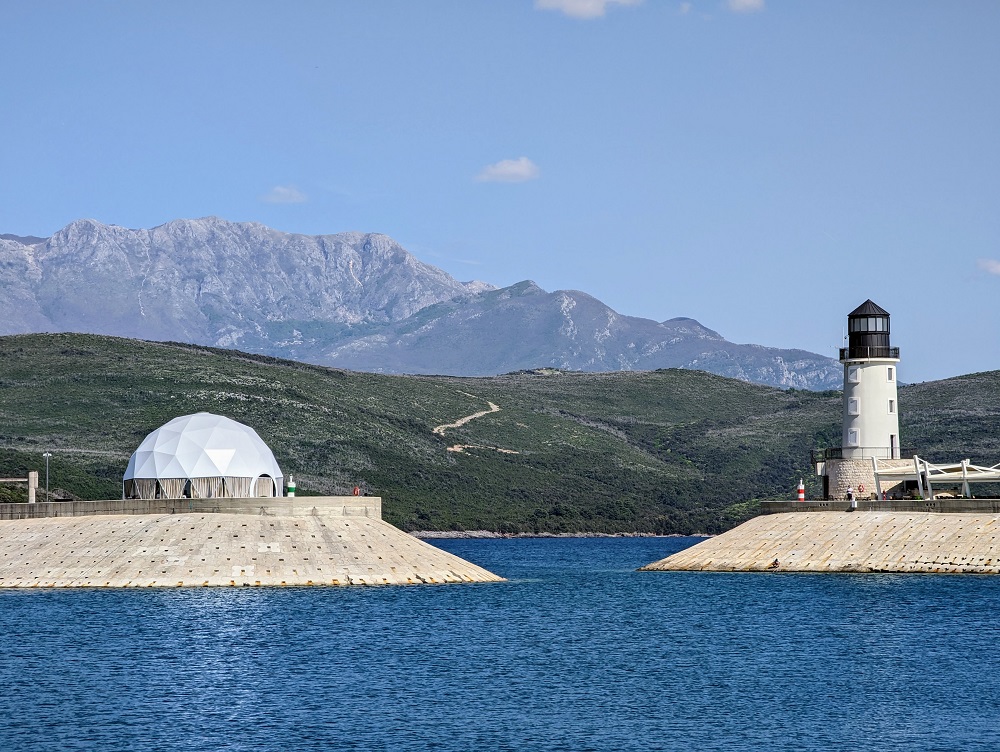
The Dome and the Lighthouse – two of the venues where events were taking place in Zuzalu
What the hell is a longevity network state?
There are many ideas a network state can be founded upon. Balaji himself provides examples, such as a “Keto Kosher state” built around the uncompromising struggle with simple carbohydrates. Good luck buying a donut in Ketoland unless you know a reliable dealer. A topic discussed in Zuzalu at length was a hypothetical longevity network state. What is it, and do we need one?
Balaji suggests that a network state should be based on a single moral innovation. For a longevity network state, that Big Rule would probably be “defeating aging is of utmost importance”, or, if you frame it as a moral statement, “death is morally wrong”. While the goal of fighting aging has not been completely overlooked by the existing nation states, it’s not anywhere near the top of their agenda, and this creates a demand for a longevity network state.
Two practical needs stem from this overarching goal. First, the need to develop anti-aging therapies ASAP, and second, the need to stay alive (and reasonably healthy) while doing so. Hence, a longevity network state should be able to provide a friendly environment for longevity research and biotech to grow and for its citizens to lead longevity-conscious lives, including maximizing access to anti-aging therapies.
Vitalik suggests that this does require a stable physical presence. It’s easy to envision a huge longevity biotech park thriving in a friendly regulatory environment, attracting the best talent, and maybe smartly sharing resources for the common goal’s sake.
A longevity network state might have a stake in the scientific research conducted on its soil. By amassing IP and other resources, its influence and gravity will grow, providing an opportunity to change things on a global scale.
As for the citizens, they would be able to lead longevity-oriented lifestyles in the state’s numerous hubs around the world, with curated restaurants, a range of physical activities, monitored air quality, and access to longevity medicine. They would probably also be enabled, encouraged, or maybe to a certain extent required to contribute to longevity research via DAOs or other structures.
As a part of a laxer regulatory environment, the citizens will have an expanded right to try experimental medical interventions. Frustration with the current system that stymies this right was palpable in Zuzalu. “If I or my mother get cancer while living in the US,” Sebastian said, “in order to get reimbursed, we’ll have to take the standard of care therapy first, starting with chemo and radiation, which are very bad for you.”
While the current regulatory system may seem cruel and prohibitive, it’s there to protect all citizens from poorly devised and tested interventions; whether it does more harm than good by hampering research is an open question. While biology-savvy people can make well-informed choices for themselves, most other citizens cannot. This also means that in a community saturated with such biology-savvy people, regulations can be safely relaxed – a point in favor of a longevity network state.
The potential problems are many. For instance, slackened regulation can usually be found or negotiated for in developing countries, while long-term stability required for multi-year biological research is a hallmark of developed, highly regulated societies.
However, plans to build such a state are surprisingly advanced. Sebastian is part of the group that wants to establish a longer-term longevity network state in Latin America. “We’re going to do a trip this winter to meet with some governments there”, he said. “The European center can be in Montenegro, the Western hemisphere center will probably be in Latin America, maybe Prospera, and one in Asia, we like Thailand now.”
Nathan Cheng, general partner at Healthspan Capital and co-director of Longevity Biotech Fellowship, and Adam Gries, managing member at Authentic, are creating a movement called Vitalism to explore various approaches to a longevity state. One such approach is unlike both Balaji’s and Primavera’s. It entails making existing jurisdictions more longevity-friendly by means of social and political activism. “It doesn’t necessarily have to be one state”, Nathan said. “It could be a general idea of transforming jurisdictions, nudging them in a certain direction, like a political movement. You don’t have to create a new country.”
Nathan envisions that when this longevity-friendly approach starts producing clear benefits for the people who adopted it, such as improved healthspan, quality of life, and longevity R&D-driven economic growth, more countries and jurisdictions will join, creating a growing longevity bloc. Currently, the group has identified Rhode Island, Montana and Montenegro as promising longevity state candidates, because of their size, central locations, openness to innovation, and attractive infrastructure.
This resonates with something Mike Johnson said: “Longevity is one of the main ways to invest in what is good about life. Society has many inputs and outputs, and as the quality of inputs goes up and down, so does the quality of outputs. The base is how healthy people are, and it matters a lot. If we improve this variable, we get better outcomes across the board”.
What’s next for Zuzalu?
For hundreds of people, Zuzalu was a transformative experience and, overall, a resounding success. Friendships and alliances were forged, a lot of things were learned, and a lot of stuff got done.
Zuzalu also showcased the huge value of personal interaction and co-living. “Many people reported how much they enjoyed the experience, how happy they were, how this gave them a feeling of community and family”, Vitalik said, and I can attest to that.
Technology supposedly has provided us with enough tools to work and collaborate remotely, but it turns out that nothing beats old-fashioned human interaction. “There’s a lot of value in networking”, Sebastian said. “We can go off and do science on our own, but meeting collaborators, investors, journalists is very important. A lot of dedicated people here are making valuable connections.”
Where to go from here? Vitalik thinks that the concept has been proven. He is confident that Zuzalu will grow and live on, probably on a longer time scale: “We did a poll and one of the questions was, if there was another Zuzalu, would you show up? Zero people voted “no”. I think it’s going to be renewed anyway, with or without us. When we asked who was thinking of making their own Zuzalu, a lot of people raised their hands. It’s going to happen, and the question is, what role are we taking in this experiment?”
When asked how he sees the future of Zuzalu, Laurence said that the most important aspect is decentralization: “Not only that the core organizers don’t make all the decisions, but that all stakeholders are considered, including future residents, who vastly outnumber the current Zuzalians. We encourage many forks. Some might be exclusive, small, nomad villages. Some will hopefully get clearance from existing states to establish a special economic zone or jurisdiction with some regulatory autonomy and have a big longevity city.” Laurence hopes this big longevity city can be established in the next few years.
Zuzalu 1.0 only existed for two months, and my stay there was much shorter. In fact, it was way too short. As much as I was missing home, I knew I could easily spend a month there. The heartbreak of having to leave was real.
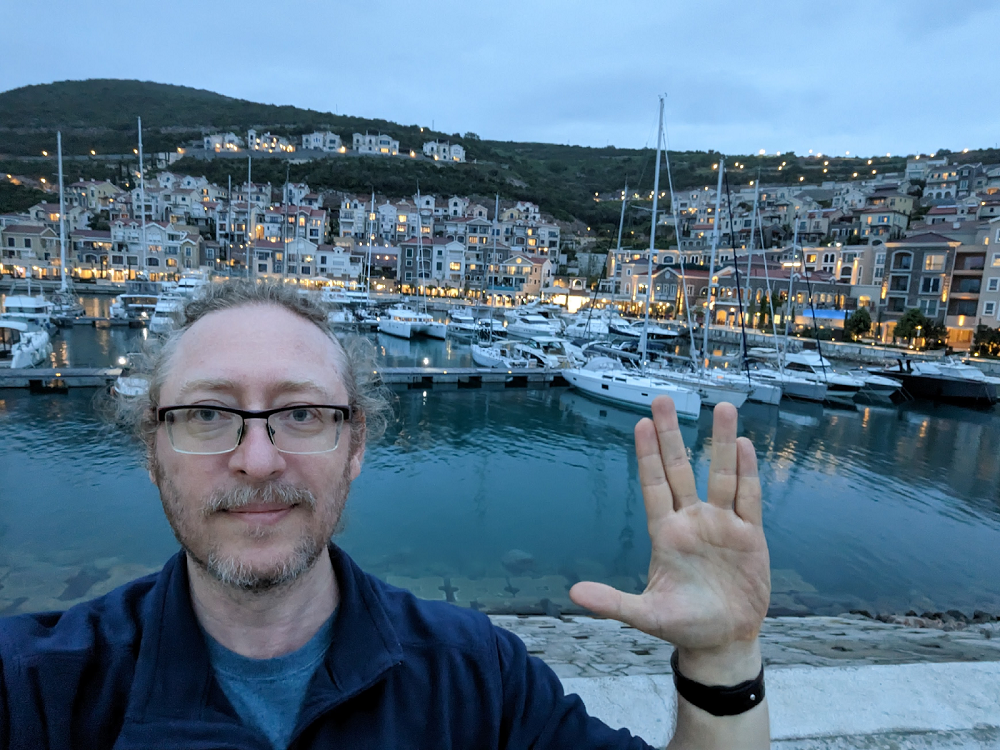
Me saying goodbye to Zuzalu
When I was about 15, I read Herman Hesse’s classic novel “The Glass Bead Game”. The novel depicts Castalia, an imaginary future state dedicated to nurturing the life of the mind via a game of associations based on all humanity’s knowledge and wisdom. As an adolescent, I was enamored by this idea and often dreamt of living in such a place. But while Castalia is shown as a locked-in-itself refuge from the world’s problems, Zuzalians are serious about changing the world. For me, Zuzalu was a preview of a better Castalia that I can reasonably hope to once become a citizen of.

